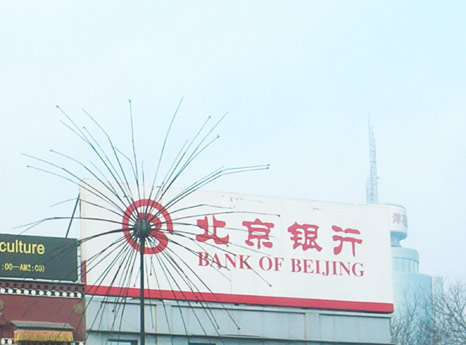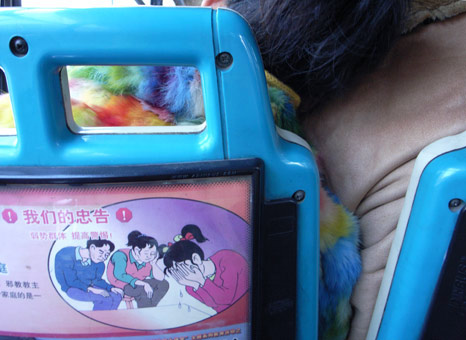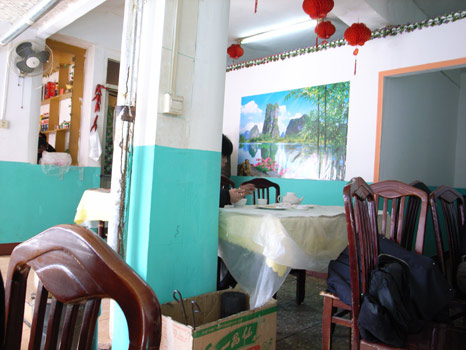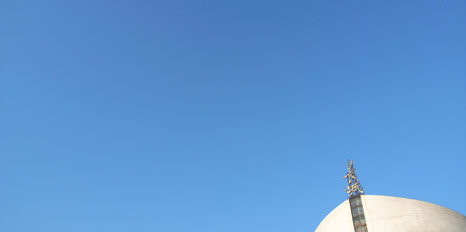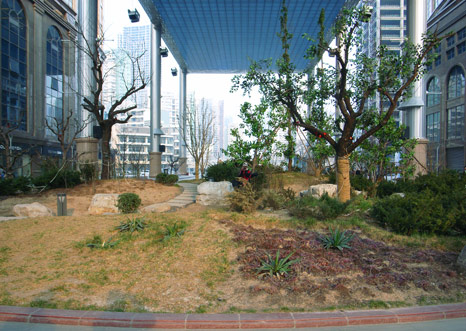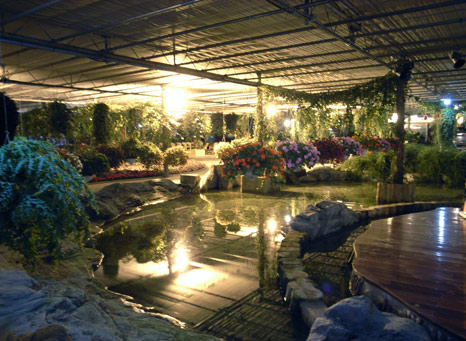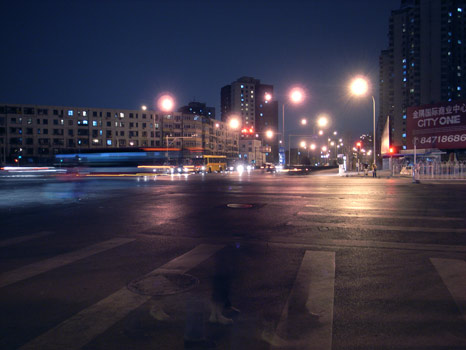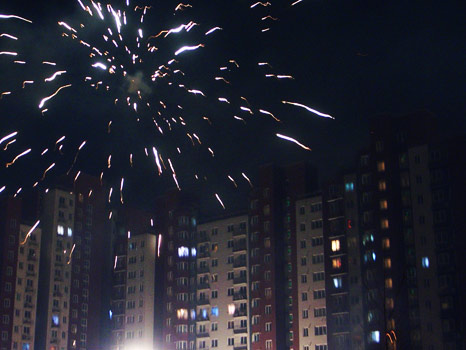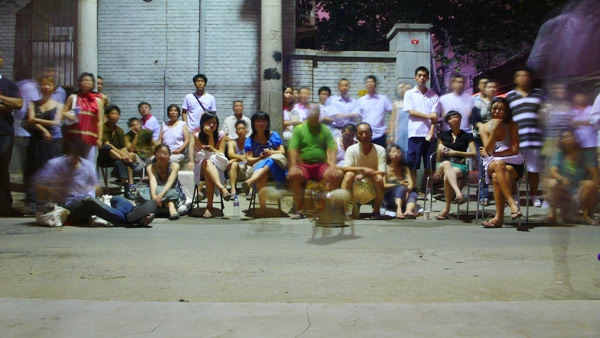 beijing, CN weather for 8 august 2008: cloudy and overcast, high 34° C – low 26° C. [照片 photo by 任杰 Ren Jie]
beijing, CN weather for 8 august 2008: cloudy and overcast, high 34° C – low 26° C. [照片 photo by 任杰 Ren Jie]
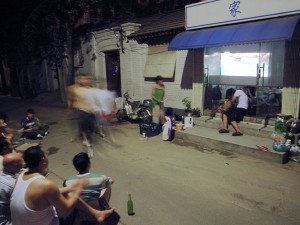
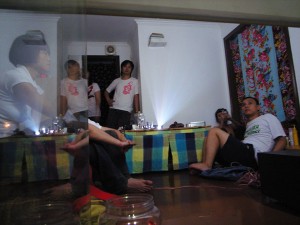 unexpectedly, they gather inside as well, cliques form in enclosed spaces, are private spaces, a flipping of the image. every so often someone passes underneath the screen: let’s get some fresh air, take a picture, or another beer. [左照片 left photo by 何新城 Neville Mars, 右照片 right photo by 逗号 Comma]
unexpectedly, they gather inside as well, cliques form in enclosed spaces, are private spaces, a flipping of the image. every so often someone passes underneath the screen: let’s get some fresh air, take a picture, or another beer. [左照片 left photo by 何新城 Neville Mars, 右照片 right photo by 逗号 Comma]
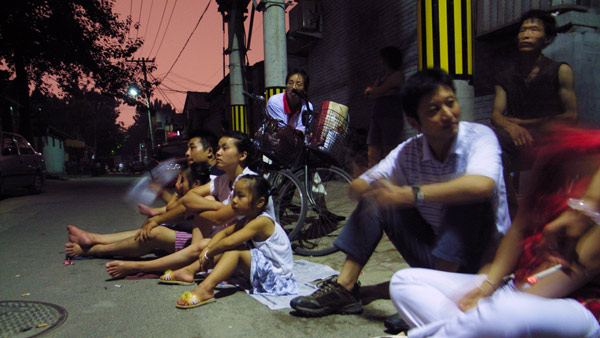 the twins stay up late with mama and papa. they’ve brought their own newspapers to sit on, and the 居民, hesitant and more wary than the crowd gathered centre front, remain leaning on bicycle, a curious periphery. [照片 photo by 逗号 Comma]
the twins stay up late with mama and papa. they’ve brought their own newspapers to sit on, and the 居民, hesitant and more wary than the crowd gathered centre front, remain leaning on bicycle, a curious periphery. [照片 photo by 逗号 Comma]
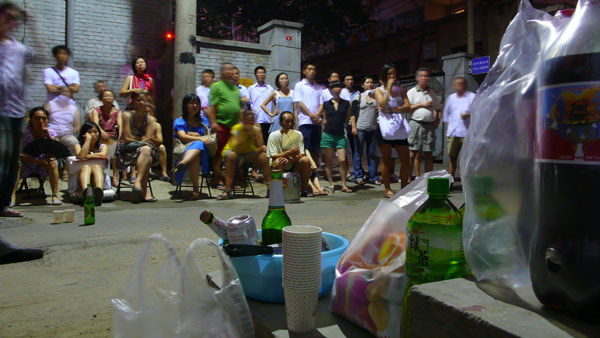 one makes a suggestion to move the drinks closer to the crowd. they are shy to come up to the shop/screen and help themselves. it is difficult to keep the beers cold at this time of year—-a humid Beijing summer night—-but time passes, each country makes its entrance and we sweat, enthralled. [照片 photo by 任杰 Ren Jie]
one makes a suggestion to move the drinks closer to the crowd. they are shy to come up to the shop/screen and help themselves. it is difficult to keep the beers cold at this time of year—-a humid Beijing summer night—-but time passes, each country makes its entrance and we sweat, enthralled. [照片 photo by 任杰 Ren Jie]
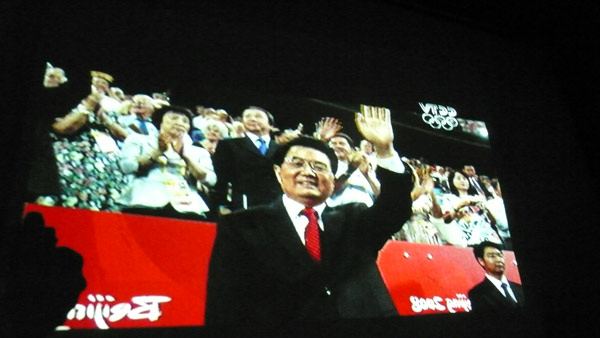 呼,胡。 Camera movements are orchestrated in an almost-precision choreography, and we all know when it is our time to come on. Or we look for that flickering moment when a head turns to realise which camera has us. Big screen watching, the view finder can be deceiving. …Konstantinos Glücksburg?[照片 photo by 任杰 Ren Jie]
呼,胡。 Camera movements are orchestrated in an almost-precision choreography, and we all know when it is our time to come on. Or we look for that flickering moment when a head turns to realise which camera has us. Big screen watching, the view finder can be deceiving. …Konstantinos Glücksburg?[照片 photo by 任杰 Ren Jie]
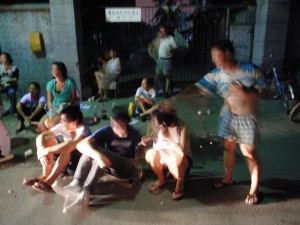
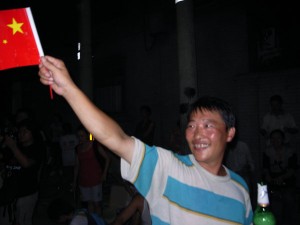 she calls him 老刘 Old Liu, the literary fool who always speaks the truth. she’r teng: he thinks i either never come out or go out too much; we’ve both lived on this street for about one year now, and how come i never see you?[照片 photos by 逗号 Comma]
she calls him 老刘 Old Liu, the literary fool who always speaks the truth. she’r teng: he thinks i either never come out or go out too much; we’ve both lived on this street for about one year now, and how come i never see you?[照片 photos by 逗号 Comma]
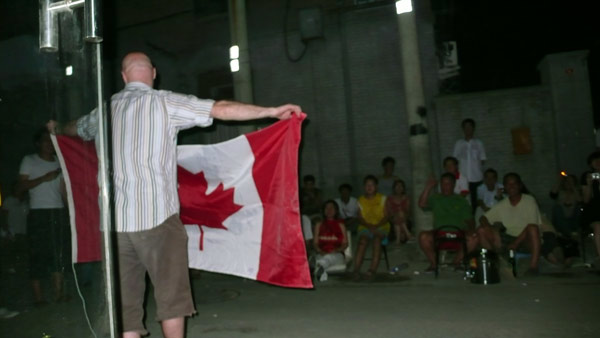 he wants to rouse the otherwise captivated still… they cheer for him, and the chinese-toronto crew in the back, too. [照片 photo by 任杰 Ren Jie]
he wants to rouse the otherwise captivated still… they cheer for him, and the chinese-toronto crew in the back, too. [照片 photo by 任杰 Ren Jie]
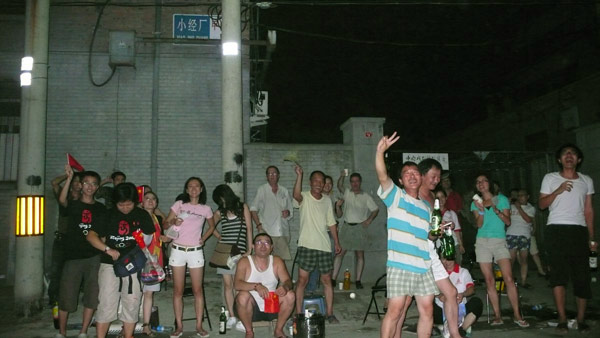 we want to see china, they want to see china, 大家都为西红柿炒鸡蛋站起来喊叫。big brother Zheng is always cool: “Nothing to shout about, we can just sit back and relax.” [照片 photo by 任杰 Ren Jie]
we want to see china, they want to see china, 大家都为西红柿炒鸡蛋站起来喊叫。big brother Zheng is always cool: “Nothing to shout about, we can just sit back and relax.” [照片 photo by 任杰 Ren Jie]
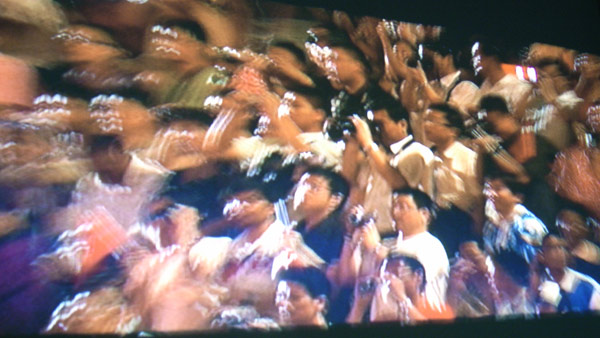 17 days and counting: HomeShop is watching… 17天以下:家作坊在看… Many thanks to sportsbabel for working together, carrying, and making connections from between spaces by the shopfront tree…[照片 photo by 逗号 Comma]
17 days and counting: HomeShop is watching… 17天以下:家作坊在看… Many thanks to sportsbabel for working together, carrying, and making connections from between spaces by the shopfront tree…[照片 photo by 逗号 Comma]
Posts tagged ‘北京 beijing’
 时间 posted on: 10 August 2008 |
时间 posted on: 10 August 2008 |  发布者 author: e |
发布者 author: e |  comments (2) |
comments (2) |
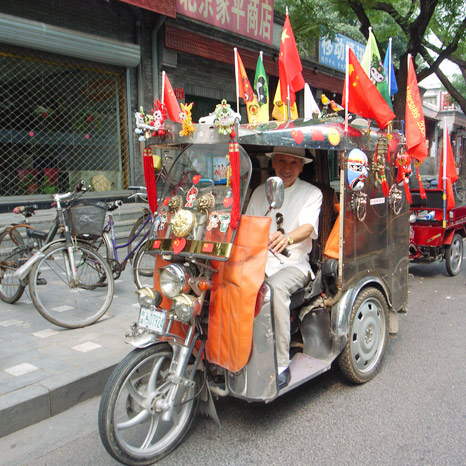
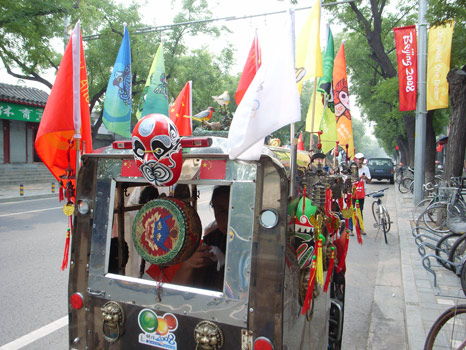
北京鼓楼东大街 Guloudongdajie, 15:38。因叔叔的moto车而自豪,很欢迎停下来给人拍照片。阿姨坐后面没表情想赶紧回家。
 时间 posted on: 8 August 2008 |
时间 posted on: 8 August 2008 |  发布者 author: e |
发布者 author: e |  评论 comment (0) |
评论 comment (0) |
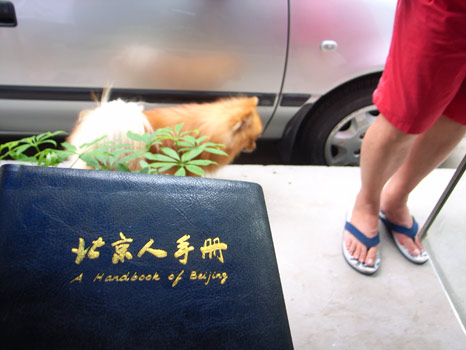
2008年8月7日:今天在火炬接力通过北京的时候,张哥送了我一本《北京人手册》。
7 August 2008: As the torch relay crosses Beijing today, big brother Zhang gives me the gift of “A Handbook of Beijing”.
 时间 posted on: 8 August 2008 |
时间 posted on: 8 August 2008 |  发布者 author: e |
发布者 author: e |  评论 comment (0) |
评论 comment (0) |
c a l l . f o r . p a r t i c i p a t i o n
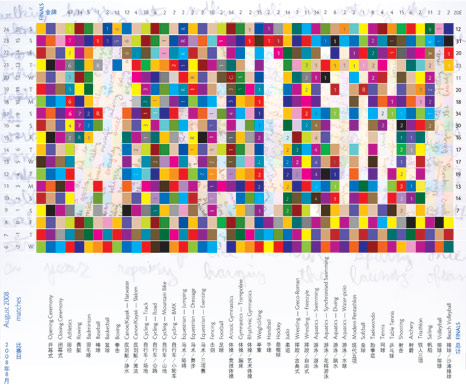
From the 8th of August, 2008 at 8:00 p.m. to the end of the closing ceremonies on the 24th of August, a small space located at Xiaojingchang Hutong in the centre of Beijing will be open to host and organise a series of minor practices[1] that will embark from the crossing points of the local community and the world spectacle of the 2008 Olympic Games. As a commercial storefront space that also hosts its proprietors for living, sleeping and eating, this space represents a metaphorical bringing together of the public and the private, a commercial trade with the common good or open exchange. During the period of the Olympic Games, a number of activities will take place to investigate, document and generate possibilities for our relationships as individuals to the 2008 Olympic plan, the timetable and its juxtapositions with local urban micro-society. This is an open call inviting your agency as participant, observer and player. [download full english project proposal as PDF here, 下载中文方案]
Please address inquiries, ideas and informal proposals for an activity you’d like to initiate by e-mail to: ho [at] iwishicoulddescribeittoyoubetter [dot] org, by telephone at +86 137.1855.6089. While there is no official budget available for any of these events and activities, if certain equipment and/or resources are required, please contact and we will do our best to make suitable arrangements. There is no deadline, and your ideas are welcome for the duration of the Games. Training is not required. 有时间过来玩!(If you have time, come over and play!)
Among the Events planned/possible…
. evening public viewing of Olympic Games via storefront LED projection
. field recordings of the neighbourhood (audio/video)
. public wii games via storefront LED projection
. street-logs[2] and hutong-side live sports announcing
. presentations and/or talks on related work
. storefront sale of refreshments and other goods
. Beijing Critical Reading Group session
. language lessons for sports and netspeak
. street party for Olympic losers
Participants, Potential players…
. Beijing Critical Reading Group participants
. Pauline Doutreluingne – curator, DJ
. summer school students of Fensiting Primary School, two doors down
. Beatrice Ferrari – geography and spatial planning; Ecole Polytechnique Fédérale Lausanne
. big brother Gao – next door neighbour, security guard
. 何颖雅 Elaine Ho – art and design
. 蔡凯 Cai Kai – art and design
. 崔凯旋 Cassidy Cui – professor
. Liang Yue – art and performance
. Ren Bo – filmmaker
. Ouyang Xiao – art and critical theory
. Sean Smith – critical sports theory, Brock University, phD. candidate European Graduate School
. Grandpa Wang – neighbour from the building across the street, retired musician, active ladies man
. big sister Wang and big brother Yue – the landlords, subway ticket vendor
. big brother Zheng – next door neighbour, postal office worker
HomeShop will be open daily by appointment throughout the 2008 Olympic Games in Beijing. A running schedule of all events will be continuously updated on this blog. The HomeShop Games 2008 project is an initiative of 何颖雅 Elaine W. Ho and 欧阳潇 Xiao Ouyang, hopefully the first in a series of community-based investigations of art practices, Beijing, networked spaces and the home. Documentation, essays and other contributions from this series will be compiled for a publication to be produced after the Games. In the case of inclement weather, we can huddle together.
———
[1] See http://www.sarai.net/practices/cybermohalla/minor-practices. A number of the ideas for the HomeShop games project are humbly attributed to the work Cybermohalla.
[2] “Streets are spaces of banal repetitions, encounter with world of things, gathering of people and occasional events. This is also how streets enter our conversations. To stand still in a street or to observe a street over a certain duration of time could make the street re-appear into conversations and thought with renewed vividness and perplexity. Street-logs were evolved by practitioners in 2004 to engage with the familiar and the banal, to find ways of re-thinking and re-imagining its disruptions, surprises and flows” (Cybermohalla).
 时间 posted on: 13 July 2008 |
时间 posted on: 13 July 2008 |  发布者 author: 家作坊 HomeShop |
发布者 author: 家作坊 HomeShop |  comments (6) |
comments (6) |
这是我的北京,这是我的最后的北京 This is my Beijing, my last Beijing. When we look at Chinese cities, we are fascinated by their restlessness, their plastic materiality where stones appear to have lost their resistance. Becoming urban, though, is not only about being in the city. It is also appropriating urbanity through its objects, ideas and moods. It is creating our imaginaire, our Beijing.
突然一阵剧烈的抖动 and what if that tremblement of the train is precisely one of those special moments when the city becomes my city? Richard Sennett told us that cities have the potential to make us more complex human beings. A city is a place where people can learn to live with strangers and enter into the experiences and interests of unfamiliar lives. However, when searching urban life, one encounters a major issue: How do the complexities and diversities of a city interact?
In Western cities, we have allowed public spaces assume this particular task. These are places where people meet, observe, socialize or pass through. This is where we think ourselves as a society. In China, public space doesn’t exist in the same way. Traditional cities were introverted, reproducing a conception of public and private that differs from the one we are familiar with. While anonymity is central in our way of living public spaces and interacting – or not – with strangers, Chinese public interactions are based on the concept of face. It is the community, instead of society, that characterized Mao’s danwei, where residents could avoid unnecessary contacts with unfamiliar situations. Conversely, contemporary urban life multiplies the occasions where one must face anonymity – in the crowd, in the supermarket, while seating on the bus – and these moments often raise hostility. However, urbanity also offers opportunities for faceless encounters, where identities can be negotiated in new ways.
This project explores the subtle lines dividing the private and public notions. These tremblements allow us to appropriate the city but also to share our experiences. These are special times and spaces, encounters and disjunctures, allowing us to be part – or not – of our urban environment. These are the lines where we define our social and individual identity. Using photos and videos, we would like to create disturbing situations where norms and practices must be questioned. Our project is a conversation, whether between ourselves and the public, or between Geneva and Beijing, about what makes our cities a bit more urban; a bit more ours.
 时间 posted on: 23 May 2008 |
时间 posted on: 23 May 2008 |  发布者 author: b |
发布者 author: b |  评论 comment (0) |
评论 comment (0) |
thank you for these thoughts. there is something very subtle. i’m not sèure that i’m grasping all the layers of meaning. i found it very inspiring.
i like the idea of the tremblement. it is one of our disjunctures, again. [i tried to translate this word in french, but it doesn’t exist. doesn’t even exist in the english dictionary. as if this absence could signify, already, what it means.
i like the idea of 这是我的北京. see the city as a collection of ‘my beijing’s. but when and where does that become our beijing? and what is the tremor, when and where does it happen? how?
public as a vision but also as the place where all the private imaginaire are shared, collective experience, the feeling of sharing a common ground
i feel in the mood for exploring those tremors. when public becomes private and private becomes public. exploring the content of private and public, but also the subtle lines that divide them and the moments, when the lines are blurred
the city produces imaginaires.–and in turn is shaped by these millions of imaginaires..how does that work? which objects, what situations, which moments?
 时间 posted on: 14 May 2008 |
时间 posted on: 14 May 2008 |  发布者 author: b |
发布者 author: b |  评论 comment (0) |
评论 comment (0) |

 分类 filed under:
分类 filed under: 